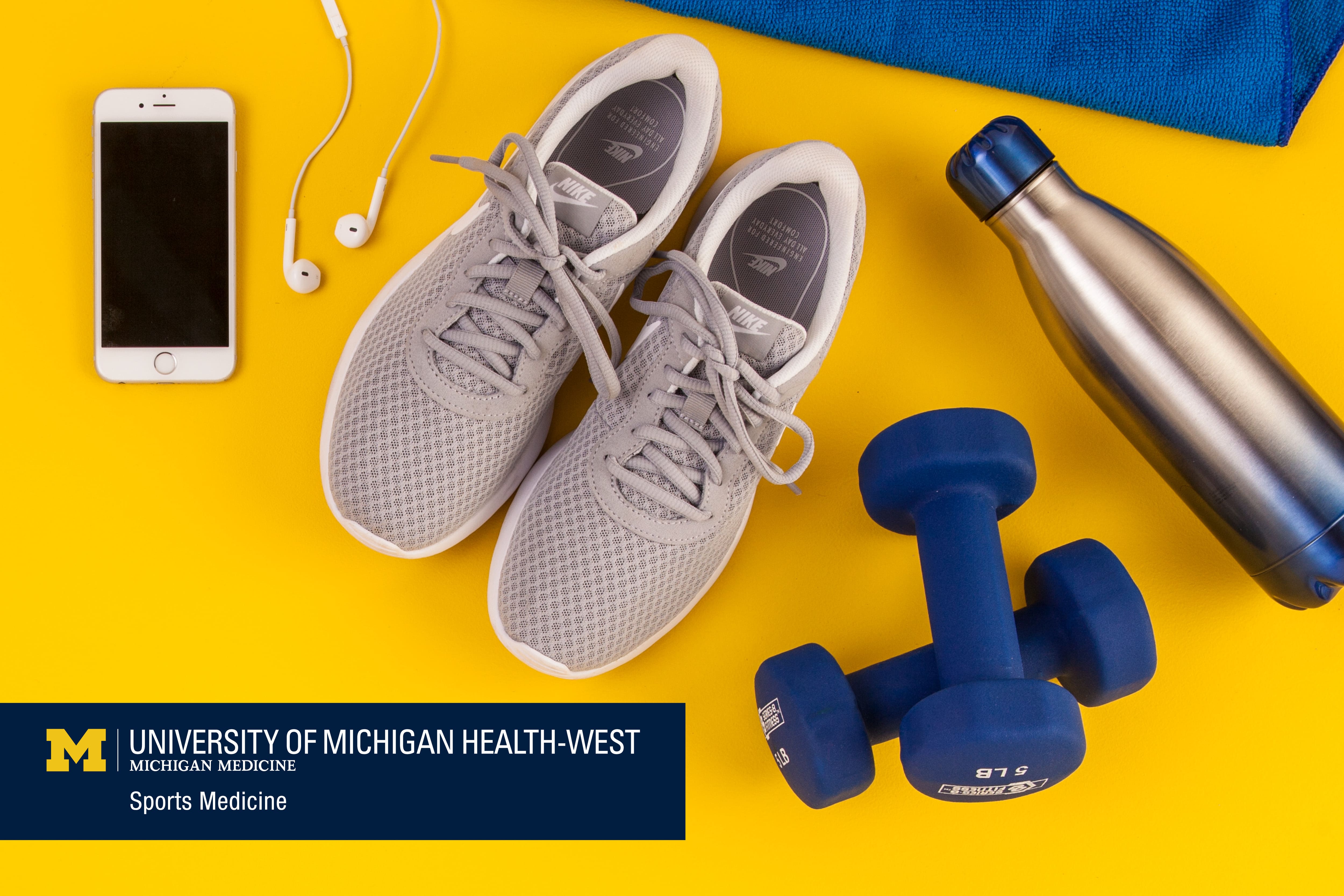
Ed Kornoelje, DO
Sports Medicine | University of Michigan Health-West
Way to go! The race is done! You have finished the SHE RUNS Half Marathon, 10K or 5K and may wonder what to do next. (Or if things did not go as well you may need a little help). Here are a few pointers:
Hydrate and refuel right after the race—and for the next few days. There will be (was) food and drink at the finish line—eat and drink up! Make sure you get some protein to help repair damaged muscles and carbohydrates to replenish the fuel you used.
Some rest from heavy training is needed after any race—the longer the race the longer the rest. While there are no specific guidelines that have been scientifically verified, some suggest one day of “rest” for each mile run—13 days if you ran the half marathon. I believe that a reasonable approach is 3-5 days of complete rest, followed by 20-30 minutes of light cardio work (running, cycling or swimming) 2-3 times during the first week of recovery. This is called active rest. Push-ups, sit-ups, and light weight training are OK too. Rolling and massage therapy are also good ideas.
If you are feeling good at this point (7-10 days out from the race), Susan S. Paul, MS from Runner’s World suggests doing a “reverse taper” by repeating your taper weeks in reverse order, gradually increasing the distance of your runs to close out the first post-race month. Keep the intensity level at 60-80% of max heart rate during these runs.
It is not unusual to have some muscle or bone pain after a race. Delayed onset muscle soreness (DOMS) may actually make you feel more sore several days after the race. This is due to microscopic muscle tissue damage—the better condition you are in going into the event the less likely this is to occur. This should improve over the next few days, and go away. If pain localizes to one area, or doesn’t go away after 7-10 days, consider seeing a sports medicine physician. If you have severe pain, or the pain is getting worse, consider seeing the physician sooner.
One way to assess how your recovery is going is by monitoring your resting heart rate (RHR). This is best measured by taking your HR early in the morning just after waking up in the weeks leading up to the race. If while you are performing you recovery runs your RHR is returning to pre-race levels, your recovery is on target. If it is staying elevated, your intensity is likely too great. This is also a good way to monitor your pre-race training as well—if you notice you RHR going up as you train, you are not allowing your body enough time to recover between hard workouts.
What about racing? After a half marathon, 6-8 weeks is appropriate (before running another long race—probably a 10 miler or longer). Muscle regeneration continues to occur for many weeks after an event like this. Racing too quickly can damage muscles that are still healing, causing pain, limiting performance, and setting you up for other injuries. Running a shorter race (5K) is OK as part of your recovery.
I know that a number of you used the Gazelle Girl Half Marathon as a “training” run for the Fifth Third River Bank Run, or the Bayshore Marathon or other spring marathons. Hopefully you did just that—ran a training run at a training run pace. If so, you should be right on track for your next event, and this did not count as a “race.” If you were caught up in the moment and ran pretty fast, make sure you get plenty of rest and consider doing some (a lot) of cross training between now and your next race.
If your recovery faces a few bumps along the way, don’t just wait it out—come see us! Call 616-252-7778 or search sports medicine at www.uofmhealthwest.org for more information or to make an appointment.
Be active!